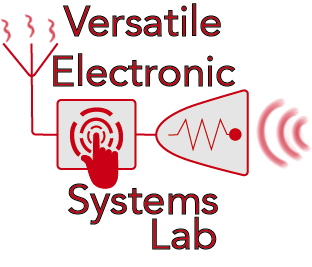Teaching
Upcoming Teaching Schedule
- Fall 2025 – ECE 4530/ECE 5530: Analog Integrated Circuit Design
- Spring 2026 – ECE 4950/ECE 5960: Sensor Design
- Fall 2026 –
- ECE 4530/ECE 5530: Analog Integrated Circuit Design
- ECE 7930: Succeeding in the Graduate Environment
- Spring 2027 – ECE 6320: Applied Magnetism
Past Courses Taught
- ENGRG 1050: Engineering Seminar (Fall 2020)
- ECE 2100: Introduction to Circuits for ECEs (Spring 2021)
- ECE 3150: Introduction to Microelectronics (Spring 2022, Spring 2023, Spring 2024)
- ECE 4950/ECE 5960: Sensor Design (Fall 2023)
- ECE 5970/ECE 6320: Applied Magnetism (Fall 2019, Fall 2020, Fall 2022)
- ECE 6990/7930: Succeeding in the Graduate Environment (Fall 2020, Fall 2021, Fall 2022)
Course Contributions:
ECE 2100: Introduction to Circuits for ECEs
ECE 2100 is an introductory course covering basic circuits. Students learn how voltage and current get distributed in purely resistive circuits, then expand upon this knowledge to add other passive components like inductors, capacitors, and even diodes. Circuits are understood from both the time-domain and frequency-domain perspectives through a variety of engaging lab exercises.
Professor El-Ghazaly taught the laboratory sessions of the introductory circuits class during the hybrid-teaching semester of Spring 2021 amidst the COVID pandemic. For the purposes of remote access to lab exercises, Professor El-Ghazaly reconfigured aspects of the labs and created remote kits. Details of the remote kits and lab exercises can be found on this page.
ECE 3150: Introduction to Microelectronics
ECE 3150 is a mid-level undergraduate course on microelectronics. Students learn the basic physics of semiconductors and the operation of electronic devices made from them. Students also deepen their knowledge in circuits by delving into more advanced topics like single-stage transistor amplifiers, multi-stage and differential amplifiers, and transistor logic.
During her three years teaching the course starting in Spring 2022, Professor El-Ghazaly revamped the laboratory assignments and exercises to make the course more engaging. In these updated labs, students get to apply their knowledge to construct hands-on prototypes of useful systems that are based on the topics discussed in class, including current mirroring and amplification, transistor-level logic gates, and differential amplification with high common-mode rejection, among others. The lab exercises and prototypes are summarized here.
ECE 4950/ECE 5960: Sensor Design
ECE 4950/ECE 5960 is a new upper-level undergraduate/M.Eng. course created by Professor El-Ghazaly on the design of sensor systems. The course focuses on the design of the transducers (in particular, sensors) and peripheral circuitry required to build a working sensor system that meets the needs of a given application. The course considers common specifications and tradeoffs, including sensitivity, specificity, dynamic range, resolution, power consumption, size, bandwidth, and cost.
Students who have taken ECE 3030 (Electromagnetics) and ECE 3150 (Microelectronics) are encouraged to join. The many fun labs include some that are highlighted on this page.
ECE 6320: Applied Magnetism
ECE 6320 is a graduate-level course created by Professor El-Ghazaly on the fundamentals of magnetism and spintronics. The course covers both theory and applications of magnetic materials. Over the course of the semester, students design and build projects to demonstrate magnetic principles and applications at the macro-scale. Highlights of some past student projects can be found here.
ECE 7930: Succeeding in the Graduate Environment
ECE 7930 is a seminar course created by Professor El-Ghazaly for incoming first-year Ph.D. students across Engineering, Computer Science, and the Sciences. The course, called Succeeding in the Graduate Environment, aims to guide students through their transition to graduate school, by equipping them with the crucial skills needed to “survive” academia. A special focus of the course is on navigating issues particularly facing doctoral students from underrepresented minority backgrounds. Highlights from each of the seminar lectures can be found here.
